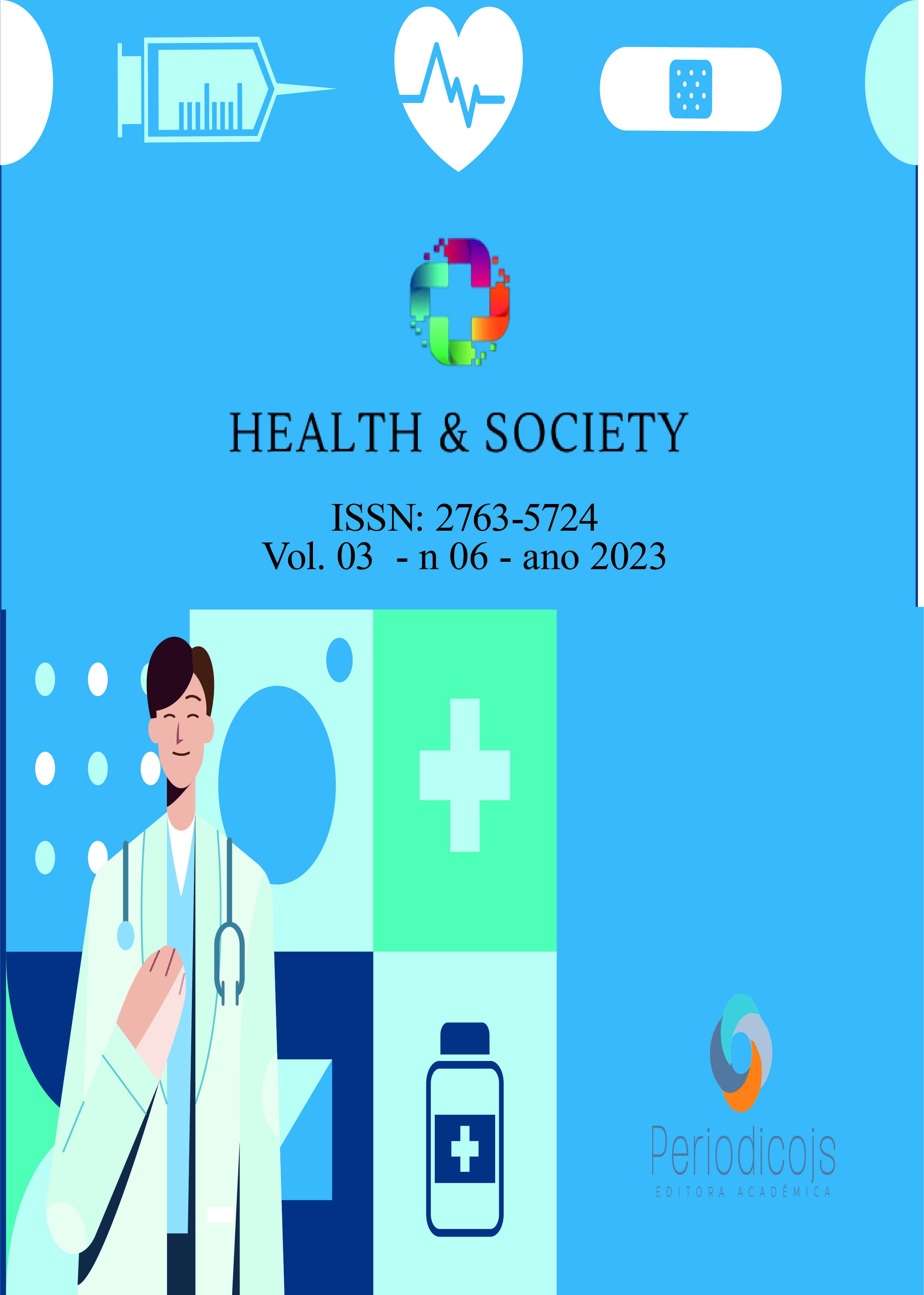Resumo
Introduction: health, being a sphere of life, in all its diversity, did not remain outside the unfolding of the changes that occurred in society. The Family Health Strategy consists of a strategy for changing the so far existing Brazilian health model experienced until the 1990s. The Family Health Strategy is inserted in a context of political and institutional decision-making to strengthen primary care within the Unified Health System. The multiprofessional health work carried out by the Family Health Strategy (ESF) teams has been characterized by a division of labor among health professionals in order to promote positive and effective impacts on the different factors that interfere in the health-disease process. Objective: to understand the historical trajectory of transformation of the Brazilian health care model with a focus on primary care and its interface with the uniqueness of the performance of professionals working at this level of care. Methods: an integrative literature review study was conducted. Results: the results showed the relevance of the work developed for health effectiveness, in which it is understood that the performance of these professionals should follow a model that integrates competence, knowledge and problem solving. Professionals working in the family health strategy are important in the promotion, information and health education of the communities in which they are included. The work involves a respectful and humanized action with emphasis on autonomy, the development of healthy habits, prevention and health care of the population that meet the new vision of health system in the country. Conclusion: the historical construction of the Brazilian health system has gone through the paradigmatic change of understanding of the health-disease process, requiring dynamic, proactive and community, managerial and interpersonal skills to this reform.
Referências
ARAUJO, M.B.S.; ROCHA, P.M. Trabalho em equipe: um desafio para a consolidação da estratégia de saúde da família. Revista Temas livres. v.4, n.13, p.460-464, 2005.
BRASIL, Ministério da Saúde. Política Nacional de Promoção da Saúde / Ministério da Saúde, Secretaria de Vigilância em Saúde, Secretaria de Atenção à Saúde. Brasília: Ministério da Saúde, 2010.
BRASIL, Ministério da Saúde (BR). Política Nacional de Atenção Básica. Brasília (DF): Ministério da Saúde, 2012.
BRASIL. Ministério da Saúde. Sistema Único de Saúde (SUS): princípios e conquistas. Brasília: Ministério da Saúde, 2000.
BRASIL. Ministério da Saúde. Portaria Nº 687, 30 de março de 2006. Brasília: Ministério da Saúde, 2006.
BRASIL. Ministério da Saúde. Portal Da Saúde. Disponível em: http://portalms.saude.gov.br/sistema-unico-de-saude/sistema-unico-de-saude, 2018.
BARROS, I.C. A importância da estratégia saúde da família contexto histórico. UFMG, Minas Gerais. 2014.
CAMELO, S.H.H.; ANGERAMI, E.L.S. Formação De Recursos Humanos Para A Estratégia De Saúde Da Família. Caderno de Ciências e Cuidados a Saúde. Jan/Mar. v.7, n.1, p.45-52, 2008.
COIMBRA, V.C.C et al. A atenção em saúde mental na estratégia da saúde da família. Revista eletrônica de Enfermagem. v.7, n.12, p.113-117, 2005.
FRANCISCHINI, A.C. et al. A importância do trabalho em equipe no programa saúde da família. Investigação. v.8, n.1-3. p.25-32, 2008.
FIGUEIREDO, E.N. Estratégia Saúde da Família e Núcleo de Apoio a Saúde da Família: diretrizes e fundamentos. Modulo I. Especialização Saúde da Família. pp:01-21. 2017.
FORTUNA, C.M et al. O trabalho em equipe no programa de saúde da família: reflexões a partir de conceitos do processo grupal e de grupos operativos. Revista Latino Americana de Enfermagem. v.13, n.2, p.262-268, 2005.
LOPES, R.C.P. Integração da ESF como forma de organização da demanda e contribuição para o acesso ao serviço de saúde Bucal de Belo Horizonte. Universidade Federal de Minas Gerais. Especialização em Atenção Básica de Saúde da Família, 2013.
REIS, M.L. et al. Avaliação do trabalho multiprofissional do Núcleo de Apoio à Saúde da Família (NASF). Revista Texto Contexto Enferm. v.25, n.1. p.1-9, 2016.
TEIXEIRA, C.F.; COSTA, E.A. Vigilância da saúde e vigilância sanitária: concepções, estratégias e práticas. Texto preliminar elaborado para debate no 20° Seminário Temático da Agência Nacional de Vigilância Sanitária. Brasília, 2003.
SILVA, T.N et al. A equipe na estratégia de saúde da família: uma experiência do pet-saúde. Revista Brasileira De Educação Médica. v.36, n.1, p.50-55, 2012.
VAZ, A; MIARELII, T.C. Trabalho Multiprofissional na ESF. UFMG. Campos Gerais 2012.
VARELA, M. Políticas em Saúde.Instituto Formação. Ed. 1. pp: 01-41. 2013.
SOUZA, M.T.; SILVA, M.D.; CARVALHO, R. Revisão integrativa: o que é e como fazer. Einstein. v.8, n.1, p.102-106, 2010.

Este trabalho está licenciado sob uma licença Creative Commons Attribution 4.0 International License.
Copyright (c) 2023 Renata Cristina Condé, Roberta Rosa dos Reis, Nathally Augusta Silva, Sylmara Corrêa Monteiro, Rhaissa Gonçalves Souto, Elisabete Cordeiro Muniz Silva, Patrícia Souza Fernandes, Cristiano Leonardo de Oliveira Dias, Manuela Gomes Campos Borel, Maria Alice de Freitas, Andreia Correia, Lázaro Breno Antunes, Diego Barbosa Rocha, Sirlaine de Pinho, Alcina Mendes Brito





